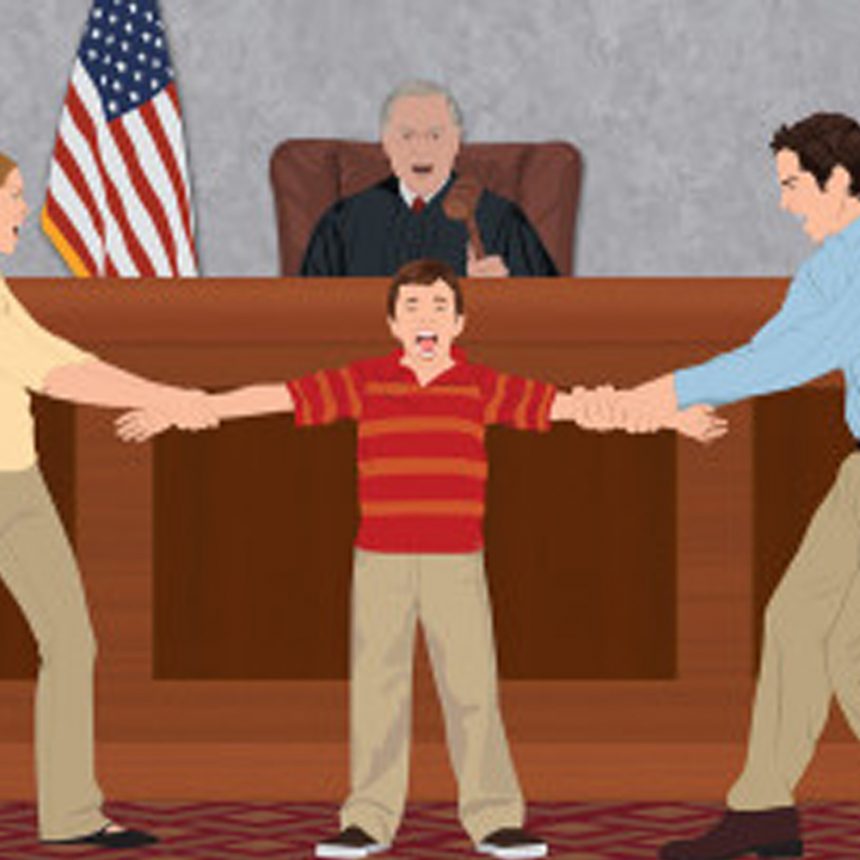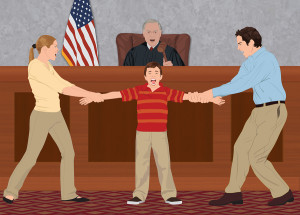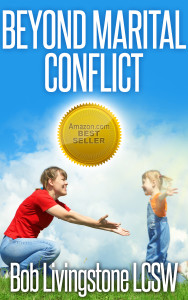This was originally published in MentalHelp.net https://www.mentalhelp.net/blogs/high-conflict-divorce-why-forgiveness-is-essential/
A high conflict divorce is a war between two separated or divorced parents. This intense and long-term battle of words consists of emotionally combustable weapons being fired at each other with their children becoming collateral damage. The children may become wounded to the point where it becomes impossible for them to recover.
Some of the effects of high conflict divorce on children are:
- They learn how to respond to parents exactly the way the adults want them to. They learn to do this as a means for avoiding conflict. Their goals are to give the parents what they want to hear in that moment without giving any thought about how they really feel or the longer term consequences of their reactive responses.
- They learn to be conflict avoiders because they have no role models who actually resolve conflicts. They witness the endless fighting of their parents that only enhances the hatred and bitterness they feel towards each other. Their kids want nothing of this ugly world and therefore have developed strong mechanisms to move away from any indication that conflict is entering the picture.
- They may become depressed, anxious, withdrawn, defiant and/or substance abusers-addicts. Children of hostile divorce parents have acute and chronic mental health risks that may be decreased with therapeutic intervention. However the success of this intervention will be limited as long the parents intensely fight each other.
- The children may come to believe the divorce is their fault and their job to fix it. They may also come to believe it is their role to comfort one or both of their parents because they are so miserable much of the time.
- They may have decreased self-esteem and their confidence takes a huge hit. Their parent’s eternal fighting become their struggle. They feel all alone and are too ashamed to talk about how much pain they are in.
- They learn to disguise their pain and appear to be happy, well adjusted children when in truth they are frightened; unsure when the ground below will crumble.
I have been a therapist in private practice for over twenty-eight years and have spent many hours working with children who have high conflict divorce parents. The chances of the children really recovering from their parent’s upheaval remains slim and nil as long as the adults don’t move away from their position from despising each other.
Parents working with a professional parenting coordinator can help resolve differences regarding time sharing of the children, communication, vacations, haircuts, phone call rules and other tangible items. A parent coordinator is essential, but won’t get at the underlying reasons for the hostility between the parents. Nor is it that parenting coordinator’s role to take on this aspect of their conflict.
Sure, therapy can help kids feel like they have an advocate and learn skills to talk honestly with their parents even if they don’t feel totally safe when doing so. Therapists can teach kids how to problem solve and make choices that will enhance their self-esteem.
Interventions that produce these positive changes are important, but as long as the kids are faced with their parents loathing of each other, that evil energy in the air will make it impossible for children to truly heal from their parent’s nasty verbal sparring.
This evil energy is obvious to the children regardless if there is outright loud arguing in their kid’s presence or if the adults have done a good job about not fighting in front of the children. The children are aware of their parent’s disdain towards each other even if the adults have stopped trashing the other parent to them.
This is why it is imperative for the parents to authentically forgive each other. As long as their children are exposed to the parent’s hatred of each other, the kids will create walls and other obstacles towards feeling their own pain about the divorce. If they cannot feel their own pain, they cannot heal the effects of high conflict divorce will remain.
As a therapist, I would probably be less stressed out if I accepted that adults in high conflict divorces don’t have the willingness to forgive each other. I may sleep better at night if I accept it as fact that most people will never change, but I refuse to accept this as truth.
The emotional lives of too many kids are at stake here, so I choose not to give up hope.




Leave a Reply